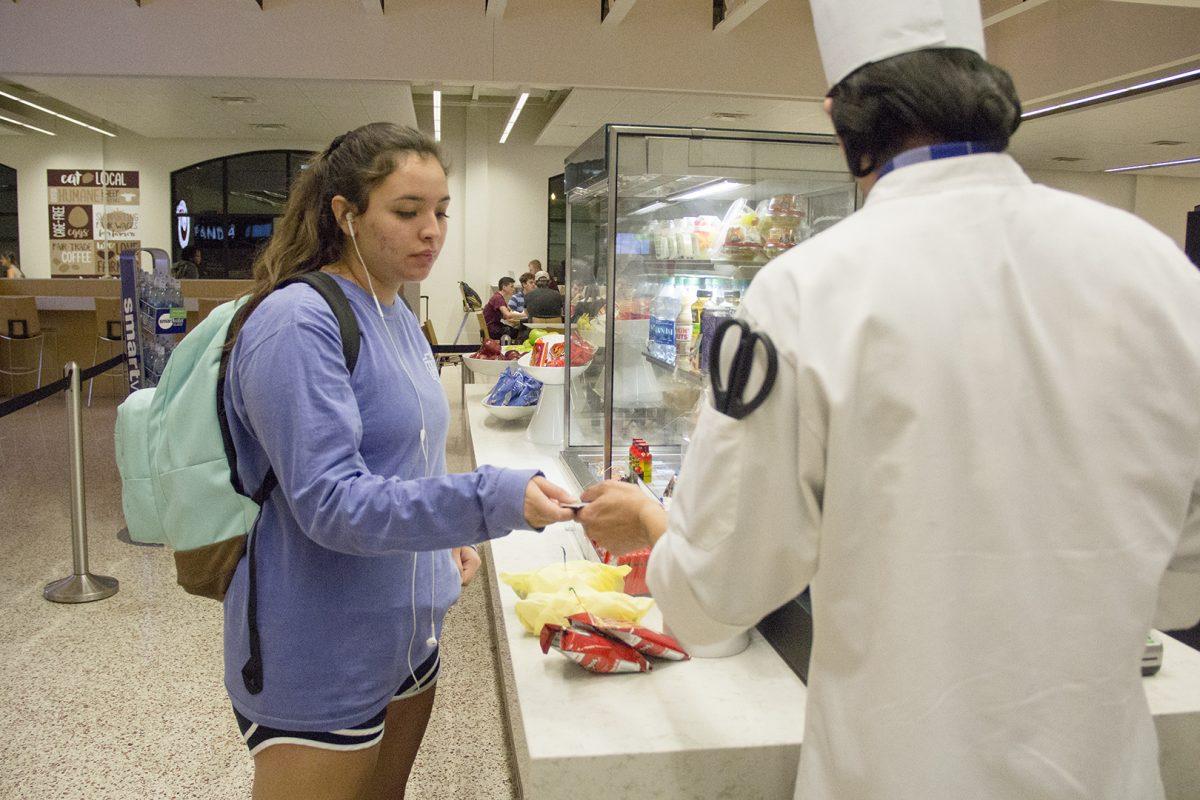Student Government, in conjunction with Chartwells dining services, passed legislation to “swipe out hunger” across campus, utilizing students’ leftover meal swipes.
This allows students with extra meal swipes after each semester to donate their surplus to local charities, homeless shelters and food banks.
The initiative, with a cap of $5,000 (10,000 swipes) set by Chartwells, will allow anyone with leftover meal swipes on their plans to make a $0.50 donation.
Chartwells will accept donations for swipes at Commons and Harris dining halls, Paws N Go, and Paws Market at LBJ Student Center between Dec. 4 and Dec. 14.
Students who have upwards of 150 meal swipes at the end of the semester can donate at any of the four locations on campus.
Brooklyn Boreing , senator and director of Programs and Marketing for Student Goverment, said the legislation doesn’t just help students, but San Marcos residents as well.
“The majority of people that are benefitting from this program are Texas State students, this is the best and most productive way to give back to them directly,” Boreing said.
According to the legislation, an estimated 40.4 percent of San Marcos residents live below the poverty line, compared to the Texas average, 21.1 percent.
“These statistics display the financial disparities common among students and San Marcos citizens alike,” the legislation stated. “Students often pay hundreds of dollars for a meal plan, often finishing the semester with leftover swipes that result in wasted food and money.”
While it is the Student Government’s goal to meet the cap set by Chartwells, the true mission of the legislation is to improve community relations between the Texas State and San Marcos residents.
“We will not let any resource go to waste while our neighbors go hungry,” the legislation added. “It is crucial that we improve communal relations in order to further advance Texas State’s exceptionalism with the approval of the local residents.”
Boreing advocated that the initiative of the Student Government mission will affect student life.
“I think a lot of people, quite often with Student Government, (wonder) ‘what are you actually doing for the students,” Boreing said. “And this is something that’s not just an awareness campaign or an event that we’re having, it’s something that is directly benefitting our student population and the Texas State community.”
Student Government utilizes unused swipes
Nohely Chavez, athletic training freshman, hands in her Texas State ID for a meal swipe Nov. 27 at Jones Dining Hall. Anyone with leftover meal swipes on their plans this semester is able to make donations to the “swipe our hunger” program.
Photo by Lara Dietrich | Multimedia Editor
Your donation will support the student journalists of Texas State University. Your contribution will allow us to purchase equipment and cover our annual website hosting costs.













